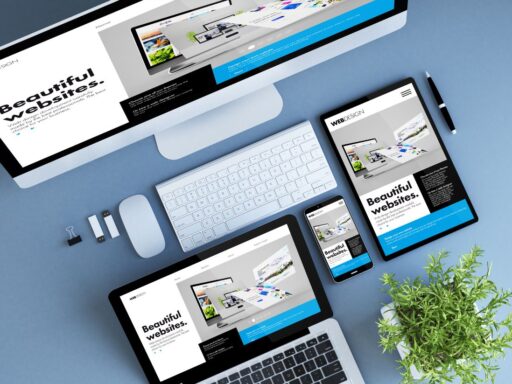Ever feel the thrill of a looming event turn into a knot of anxiety? For introverts, the whirlwind of logistics, endless interactions, and the pressure to orchestrate a flawless gathering can feel particularly draining. You’re not alone.
Studies show that even the most seasoned event planners can experience significant stress. But what if you could navigate the world of party planning with a sense of calm and control?
Welcome to the Introvert’s Guide to Stress-Free Party Planning. This isn’t about forcing yourself into an extroverted mold; it’s about understanding your unique strengths and leveraging them to create successful and enjoyable events.
This guide will equip you with practical strategies, from mastering your mindset to crafting an atmosphere that resonates with both you and your guests, ensuring your next event is not just a success, but a genuinely positive experience.
Understanding the Introverted Event Planner: Your Hidden Advantages

Hey there, fellow introverts! Let’s be real for a second. When the words “party planning” pop up, your initial reaction might not be a burst of enthusiastic cheers. Instead, maybe a little internal “oof” escapes.
The common image of an event planner is often someone bubbly, constantly networking, and thriving in the center of the action.
But guess what? That’s just one side of the coin, and it’s time we flipped it over to reveal some seriously impressive advantages that come with being an introverted event guru.
Reframing Introversion as a Superpower
Let’s ditch those outdated ideas about introversion being synonymous with shyness or being anti-social. It’s simply about where we draw our energy.
Extroverts gain energy from being around others, while us introverts recharge our batteries in quieter, more solitary environments. And guess what? This natural inclination can actually be a major asset when it comes to planning unforgettable events.
Think about it. That laser focus you have? That’s gold when you’re poring over vendor contracts or meticulously crafting seating charts.
Your tendency to think deeply? That allows you to anticipate potential problems and come up with truly innovative solutions. And that empathy you feel? It makes you incredibly attuned to the needs and comfort of your guests, ensuring everyone feels seen and valued.
So, the next time someone pictures a party planner as a social butterfly, you can confidently say, “Actually, our thoughtful approach is what makes the magic happen.”
The Introvert’s Mindset: Planning on Your Terms
So, how to plan party as an introvert without feeling completely drained? It starts with understanding your own unique way of processing information and interacting with the world.
We tend to be more reflective, preferring deeper conversations over superficial small talk. This isn’t a weakness; it’s a strength that allows us to truly understand our clients’ visions and build strong, meaningful relationships with vendors based on trust and clear communication.
Self-awareness is your secret weapon. Knowing when you need to step back and recharge is crucial.
Don’t feel guilty about scheduling in that quiet coffee break or that moment of solitude to gather your thoughts. Self-care isn’t a luxury; it’s a necessity for staying sharp and creative throughout the planning process.
By understanding and respecting your own energy levels, you can craft a planning approach that works for you, allowing you to shine without feeling overwhelmed.
Ready to explore how we can leverage these introverted superpowers even further? Let’s move on to digging into the details!
Related Content: Ultimate Guide to Planning a Memorable Office Party Employees Adore
Leveraging Introverted Strengths in Event Planning: Your Unique Advantage

Let’s flip the script on event planning. Your natural tendencies aren’t hurdles; they’re your secret weapons! This is your Introvert’s Guide to Hosting Parties – playing to your strengths.
The Power of Solitude and Creativity: Where Ideas Spark
That quiet time you cherish? It’s your creative goldmine. Introverts brainstorm best in solitude, allowing unique ideas to emerge.
Dedicate “thinking retreats” – a quiet hour or a nature walk – and try mind mapping or journaling to unlock your most innovative concepts.
Think of Sarah: tasked with a sustainable corporate party, her quiet reflection led to a “living decor” concept that wowed her client. Solitude = innovation!
Mastering the Details: Your Path to Seamless Events
Event planning thrives on details, and this is where introverts excel. Your focus and analytical nature make you meticulous planners. Go beyond basic checklists; embrace project management tools like Asana or detailed spreadsheets.
Consider Mark: his color-coded, hour-by-hour wedding timeline and comprehensive checklists ensured a flawless day. Detail-oriented = stress-free execution!
Building Meaningful Connections: Quality Wins
Networking for introverts is about quality, not quantity. Focus on deeper conversations with key people – clients, vendors, team members. Active listening and empathy build strong, trusting relationships.
Imagine Emily: by truly listening to a stressed client, she built trust and a clearer understanding, leading to a successful event. Quality connections = stronger outcomes!
Your introverted nature isn’t a disadvantage; it’s a unique power in event planning. By embracing these strengths, you can not only excel but also genuinely enjoy the process.
Ready to explore stress-free planning strategies tailored just for us? Let’s dive in!
Alright, let’s talk about making this whole event planning gig way less draining and a lot more enjoyable for us introverts. This section is all about practical strategies for stress-free party planning, tailored just for you.
Strategies for Stress-Free Event Planning (for Introverts)

We’ve established that our introverted nature brings some serious superpowers to the event planning table. Now, let’s arm you with concrete tactics to navigate the process without feeling completely depleted.
Embracing Technology for Efficiency and Comfort: Your Digital Allies
Thank goodness for technology, right? For introverts, it’s not just about convenience; it’s about preserving our precious energy.
There’s a whole world of digital tools out there that can minimize the need for constant in-person interactions and streamline your workflow like a dream.
Beyond the usual project management suspects like Trello and Asana, consider exploring:
- Communication Platforms: Slack or Microsoft Teams for efficient team communication without endless meetings.
- Virtual Meeting Tools: Zoom or Google Meet for client and vendor check-ins from the comfort of your own space. Utilize features like screen sharing to visually convey information, reducing the need for lengthy verbal explanations.
- Event Management Software: Platforms like Eventbrite or Cvent for online ticketing, registration, and communication with attendees, minimizing individual inquiries.
- Design and Collaboration Tools: Canva for creating visually appealing materials and collaborating with designers remotely.
- Automated Email Marketing: Tools like Mailchimp to handle event updates and follow-ups without constant one-on-one emails.
Pro Tip: When communicating virtually, be clear and concise in your written communication. Take a moment to organize your thoughts before hitting send. Don’t be afraid to state your communication preferences upfront (e.g., “I prefer email for detailed requests”).
The Art of Delegation and Team Management: Sharing the Load, Preserving Your Energy
Trying to do everything yourself is a recipe for burnout, especially for introverts who find constant interaction draining. Building a small, reliable team where you can delegate tasks based on individual strengths is key.
Start by identifying your own strengths and weaknesses. What tasks energize you, and which ones leave you feeling depleted? Then, look for team members whose strengths complement your weaknesses.
Clear communication is paramount. Define roles and responsibilities clearly, establish efficient communication channels (again, think digital!), and set realistic expectations. Regular, concise check-ins can keep everyone on the same page without the need for excessive meetings.
Imagine this team structure: You, the visionary, focus on the overall concept and client communication.
You delegate on-site logistics to a detail-oriented extrovert who thrives in the hustle and bustle, and administrative tasks to a meticulous virtual assistant.
A clear communication plan outlines that major updates are shared via a weekly summary email, and urgent matters are handled through direct messages.
Prioritizing Self-Care and Preventing Burnout: Your Recharge Rituals
This isn’t an optional extra; it’s essential for long-term success and well-being. As introverts, we need dedicated time to recharge our batteries away from the demands of event planning.
Schedule regular breaks throughout your day, even short ones. Utilize quiet time for activities that help you de-stress, whether it’s mindfulness exercises, a brief meditation, a walk in nature, or simply enjoying a quiet cup of coffee.
Learn to recognize the signs of burnout: increased irritability, fatigue, difficulty concentrating, and a lack of enthusiasm. When you notice these signs, it’s a signal to slow down and prioritize self-care.
Here’s a simple self-care plan for an event planner:
- Daily: Schedule at least 30 minutes of quiet time for reading, meditation, or a relaxing hobby.
- Weekly: Dedicate a longer block of time (2-3 hours) for a restorative activity like a long walk, yoga, or spending time in nature.
- During Events: Schedule short breaks away from the main action to a designated quiet space. Even 10-15 minutes of solitude can make a big difference.
- Post-Event: Plan a “recharge day” with minimal social interaction and focus on activities that help you unwind.
By implementing these strategies, you can navigate the exciting world of event planning while honoring your introverted needs and ensuring a sustainable, enjoyable career.
Ready to tackle the communication aspect? Let’s move on to making that less draining too!
Alright, let’s dive into making communication a breeze for us introverted event organizers. Because let’s face it, constant back-and-forth can be draining. Here’s your guide on how to plan party as an introvert by mastering communication on your terms.
Communication Strategies for Introverted Event Organizers: Making Your Voice Heard (Comfortably)

Efficiently conveying your vision and requirements is crucial for any successful event. But for introverts, navigating the constant stream of communication can feel like navigating a crowded room.
Fear not! There are smart and effective ways to communicate your ideas without feeling overwhelmed.
Harnessing the Power of Digital Communication: Your Written Word Advantage
Embrace the digital age, my friend! Email, project management tools, and virtual meeting platforms are your allies. They allow you to articulate your thoughts thoughtfully and clearly, without the immediate pressure of face-to-face interactions.
- Email Etiquette: Be clear and concise in your subject lines. Use bullet points and numbered lists to break down information. Take your time to compose thoughtful responses. Don’t feel pressured to reply instantly; it’s okay to take a breath and formulate a well-crafted answer.
- Project Management Tools: Utilize comment sections and task descriptions within tools like Asana or Trello to keep communication centralized and documented. This reduces the need for separate email threads and keeps everyone in the loop.
- Virtual Meetings: Prepare an agenda beforehand and share it with participants. This helps keep the meeting focused and efficient. Utilize features like screen sharing to visually explain concepts, minimizing lengthy verbal explanations. Don’t be afraid to politely interject if the conversation veers off-topic, gently guiding it back to the agenda.
Pro Tip: When writing, imagine you’re explaining something to a friend who appreciates clarity. Avoid jargon and be direct in your requests. Proofread everything before sending!
Planning and Structuring Interactions: Taking Control of the Conversation
Spontaneous conversations can sometimes feel like a mental marathon. Planning your interactions can significantly reduce anxiety and ensure you cover all necessary points.
- Creating Agendas: For meetings and calls, always prepare a detailed agenda and stick to it. Share it with participants in advance so everyone knows what to expect.
- Preparing Talking Points: Before any significant interaction, jot down the key points you need to discuss. This acts as a mental anchor and helps you stay on track, even if the conversation takes an unexpected turn.
- Managing Meeting Flow: As the organizer, feel empowered to gently guide the conversation. Politely redirect tangents back to the agenda. Summarize key decisions and action items at the end of the meeting to ensure everyone is on the same page.
- Setting Boundaries: It’s okay to set boundaries around your availability. Let clients and colleagues know your preferred communication methods and response times. Don’t feel obligated to be “always on.”
Handling Impromptu Conversations: If caught off guard, it’s perfectly acceptable to say, “That’s an interesting point. Let me gather my thoughts on that and get back to you later.” This buys you time to formulate a well-considered response.
Leveraging Visuals and Written Materials: Show, Don’t Just Tell
Sometimes, the most effective way to communicate your vision is through visuals and well-crafted written documents.
- Effective Presentations and Proposals: Utilize clear and concise slides with visuals (images, diagrams, charts) to support your points. Keep text to a minimum and focus on delivering key information verbally.
- Detailed Event Documentation: Create comprehensive event plans, timelines, floor plans, and vendor contracts. These written materials serve as a central source of information, reducing the need for constant verbal explanations and minimizing misunderstandings.
- Templates and Examples: Develop templates for common communication needs (e.g., vendor inquiry emails, client update reports). Having these pre-prepared can save you time and mental energy. Visual aids like mood boards and mock-ups can effectively convey the desired aesthetic and feel of the event.
By strategically using digital tools, planning your interactions, and leveraging visuals and written materials, you can communicate effectively and confidently as an introverted event organizer, all while preserving your valuable energy.
Ready to explore how to create an event atmosphere that caters to everyone, including our fellow introverts? Let’s move on to that!
Alright, let’s talk about crafting an event vibe that feels welcoming and comfortable for everyone, especially our fellow introverts. Because a truly successful party considers all personality types. Here’s how to how to plan party as an introvert while ensuring your guests feel right at home, no matter their social battery level.
You can also read our article “Design Events Welcoming for Non-Drinkers”
Creating an Introvert-Friendly Event Atmosphere (for All Attendees)

As introverted event planners, we have a unique understanding of the need for space and moments of quiet amidst the energy of a gathering.
Let’s channel that understanding into creating an atmosphere where everyone, from the most outgoing extrovert to the most contemplative introvert, can feel comfortable and connected.
Designing for Comfort and Connection: Creating Zones for Every Energy Level
Think of your event space as having different “energy zones.” Not everyone thrives in the center of the action all the time.
- Creating Designated Quiet Zones: These are absolute lifesavers for introverts (and anyone needing a breather!). Think comfortable seating, softer lighting, maybe some plants or calming decor. These zones don’t need to be large; even a few strategically placed armchairs in a quieter corner can make a huge difference. Consider providing a few books or quiet games in these areas as well.
- Incorporating a Mix of Activities: Balance those high-energy group activities with options for smaller, more intimate interactions. Think conversation corners, board game stations, or even a guided tasting or workshop with smaller groups. This allows guests to engage in ways that feel most comfortable for them.
- Attention to Sensory Details: Be mindful of the overall sensory experience. Loud, overwhelming music and harsh lighting can be draining for introverts. Opt for adjustable lighting, consider the acoustics of the space, and perhaps offer quieter background music in some areas. Even the scent of the venue can play a role – subtle, calming scents are generally preferable to overpowering ones.
Providing Clear Information and Managing Expectations: Setting the Stage for Comfort
Uncertainty can breed anxiety, especially for introverts. Providing clear and comprehensive information beforehand can help everyone feel more at ease.
- Pre-Event Communication: Send out detailed schedules, maps of the venue indicating the location of quiet zones and restrooms, and FAQs addressing common questions. This allows introverted guests to mentally prepare and strategize their participation.
- On-Site Information and Wayfinding: Ensure clear signage and easy-to-understand directions within the venue. Consider having a designated information desk where guests can ask questions without feeling overwhelmed in the main event space.
- Accessibility Considerations: Think beyond physical accessibility. Consider providing information about noise levels for different areas and ensuring there are options for those who might be sensitive to crowds or sensory overload.
Fostering Inclusivity and Respect: Creating a Welcoming Space for All
The goal is to create an environment where diverse needs are not just accommodated but respected and valued.
- Acknowledging Diverse Needs and Preferences: Recognize that not everyone enjoys the same level of interaction. Avoid pressuring guests to participate in activities they seem uncomfortable with.
- Creating a Welcoming and Non-Judgmental Environment: Encourage a culture of acceptance and understanding. Subtle cues, like hosts circulating and engaging with smaller groups as well as larger ones, can help create a more inclusive feel.
- Tips for Encouraging Interaction Without Pressure: Instead of forced icebreakers, consider conversation starters placed on tables or suggest open-ended questions for mingling. Facilitate connections around shared interests rather than pushing for superficial interactions.
By thoughtfully designing your event with the needs of all attendees in mind, especially introverts, you create a truly welcoming and enjoyable experience for everyone.
And as an introverted planner, you’re uniquely positioned to understand and implement these strategies effectively.
Conclusion
So, there you have it – the power of embracing your introverted strengths in the vibrant world of event planning. Remember, your thoughtful approach, meticulous eye for detail, and ability to forge deep connections are not just valuable; they are your unique superpowers in creating truly memorable experiences.
Mastering stress-free party planning as an introvert is absolutely within your reach. To help you on your journey, we’ve put together a handy checklist of essential strategies. Click here to download your free copy and start planning your next event with confidence and calm.
Embrace your introverted nature, trust your instincts, and know that you have a unique and valuable perspective to offer the world of event planning. Go forth and create amazing events, your way!
Looking for a band to hire for a party? We have something for you, below is a list of our recommended bands that you can book or hire:
VII. Stress-Free Party Planning For Introverts: Your Burning Questions Answered
Planning an event as an introvert can bring up some specific questions. We’ve compiled some of the most common ones to help guide you through the process with greater ease and confidence.
How can I handle networking events as an introverted event organizer?
Focus on quality over quantity. Identify a few key people you genuinely want to connect with and engage in deeper conversations rather than trying to work the entire room. Utilize online platforms to research attendees beforehand and identify potential connections. Don’t forget to schedule short breaks for yourself to recharge.
What types of events are best suited for introverted planners?
While you can excel at any type of event, smaller, more intimate gatherings like workshops, dinner parties, or focused seminars can often feel more natural and less draining. These settings allow for deeper engagement and connection, playing to your strengths.
How do I effectively communicate my vision to a large team or group of vendors without feeling overwhelmed?
Leverage written and visual communication. Create detailed plans, timelines, and mood boards. Utilize project management software for clear task assignments and communication logs. When speaking to larger groups, prepare talking points and focus on clear, concise delivery.
How can I balance being present at my event while also ensuring I have time to recharge?
Designate a quiet area for yourself where you can take short breaks throughout the event. Enlist trusted team members or volunteers to handle certain tasks, allowing you to step away when needed. Don’t feel guilty about taking a few moments to yourself to regroup.
What are some strategies for dealing with unexpected issues or last-minute changes without getting overly stressed?
Your natural attention to detail and planning skills are your first line of defense. However, when the unexpected happens, take a deep breath. Break the problem down into smaller, manageable steps. Don’t hesitate to delegate tasks to your team if possible. Remember that flexibility and a calm approach will help you navigate challenges effectively.
How do I follow up with attendees and vendors after the event without feeling like I’m constantly “on”?
Utilize email templates for thank-you notes and feedback requests. Schedule specific blocks of time for post-event communication rather than trying to respond immediately to every message. Consider using automation tools for certain follow-up tasks.
By keeping these questions and answers in mind, you can navigate the world of event planning as an introvert with greater confidence and less stress.






